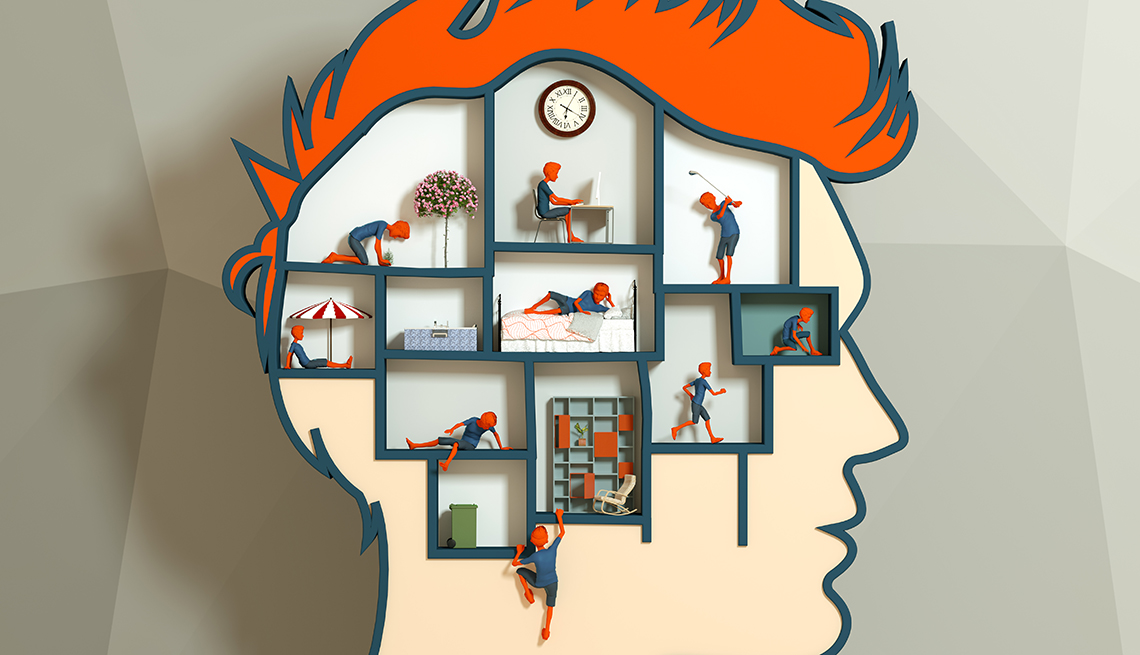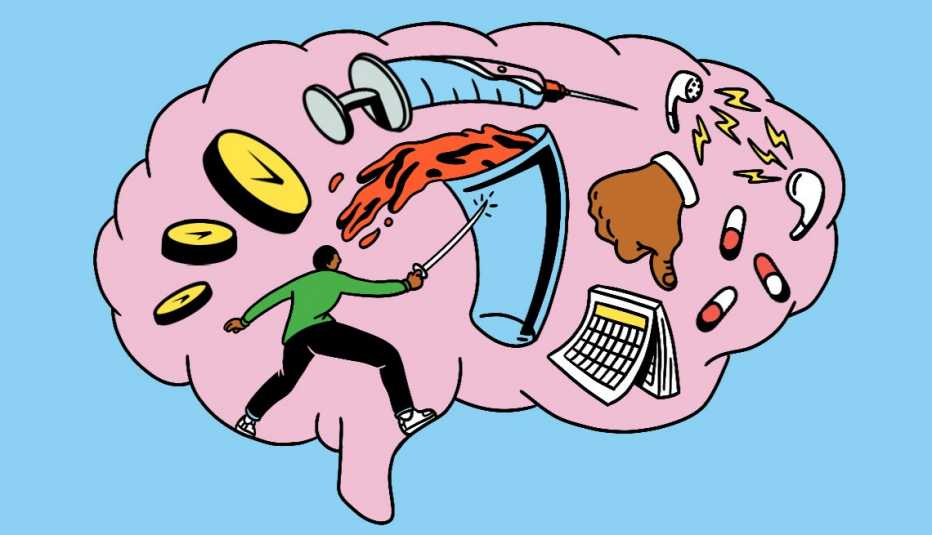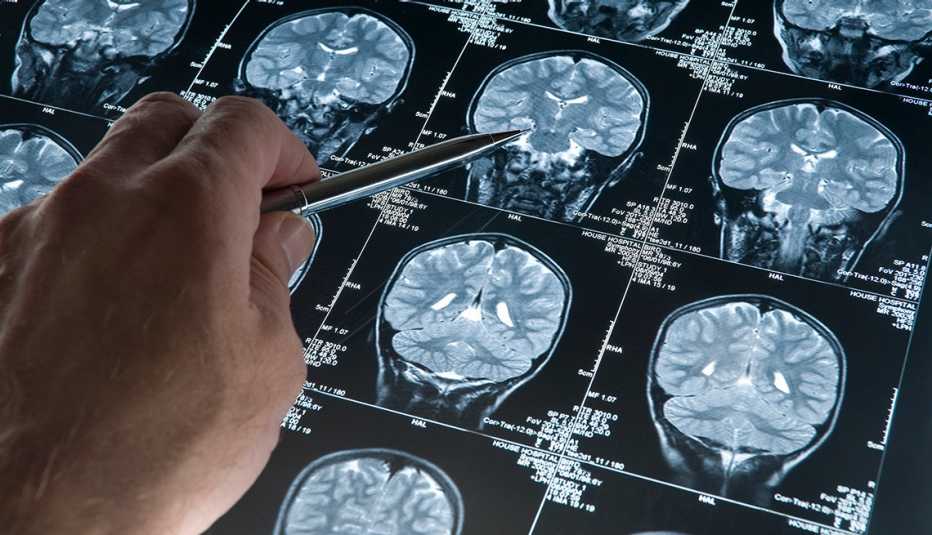Staying Fit
Despite common misconceptions, a weakening brain is not an inevitable part of aging. It’s true that the brain changes with age, but just like other parts of the body — be it your heart or your joints — taking good care of it along the way can help prevent or delay disease and decline.
In fact, everyday habits like exercise and eating right can lower risks for memory loss and other symptoms of cognitive decline, research suggests. Studies have also found that managing blood pressure and blood sugar can benefit the brain — the same goes for sleep and social engagement.
“It’s empowering to know that we can take steps to support the health of our brains as we age,” says Sarah Lenz Lock, AARP senior vice president for policy and brain health and executive director of the Global Council on Brain Health. “But knowing is only half the battle. Committing to living a healthy lifestyle is key to keeping our brains and bodies as sharp as possible throughout adulthood.”


AARP Membership— $12 for your first year when you sign up for Automatic Renewal
Get instant access to members-only products and hundreds of discounts, a free second membership, and a subscription to AARP the Magazine.
Adopting brain-boosting behaviors
Breaking old habits and adopting new ones is not always an easy feat, and the proof is in the numbers. Modifiable behaviors and choices — smoking when we know the dangers, or avoiding exercise when we know its benefits — cause up to half of all early deaths in the U.S., data shows. When it comes to the brain, a 2020 report from the Lancet Commission estimates that modifiable risk factors, like physical inactivity and excessive alcohol consumption, account for a significant share of global dementia cases.
While change can be a challenge, experts on the topic, including AARP’s Global Council on Brain Health (GCBH), have some tips on how to overcome common hurdles.
Set a goal (and keep it realistic). Identifying the specific action you want to take — and why it’s important to you — is the first step to behavior change, according to a new GCBH report on the topic. It’s important to keep these goals realistic, says George Rebok, a psychologist and professor at Johns Hopkins Bloomberg School of Public Health, who develops community-based interventions to prevent age-related cognitive decline and reduce dementia risk.





































































